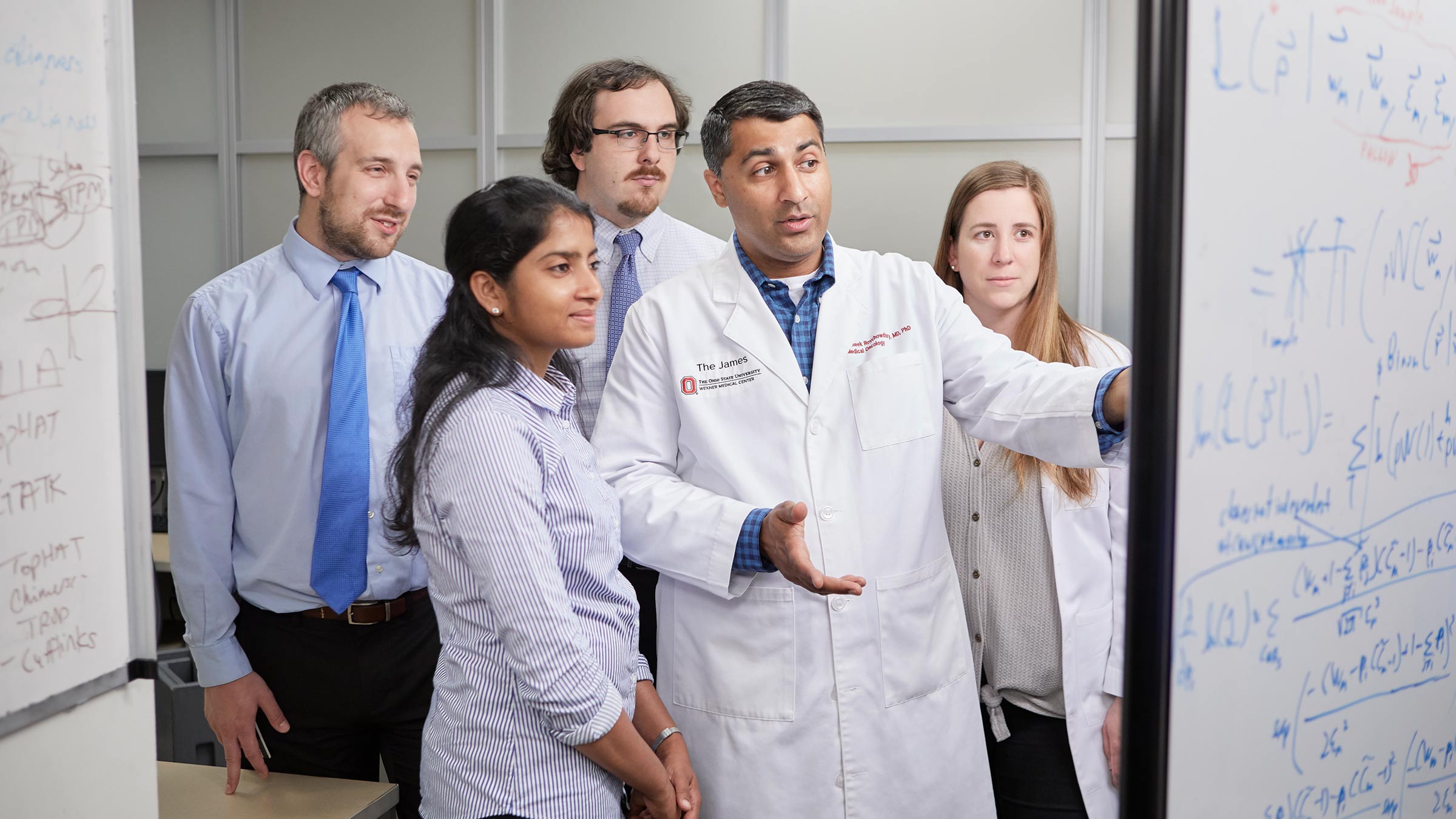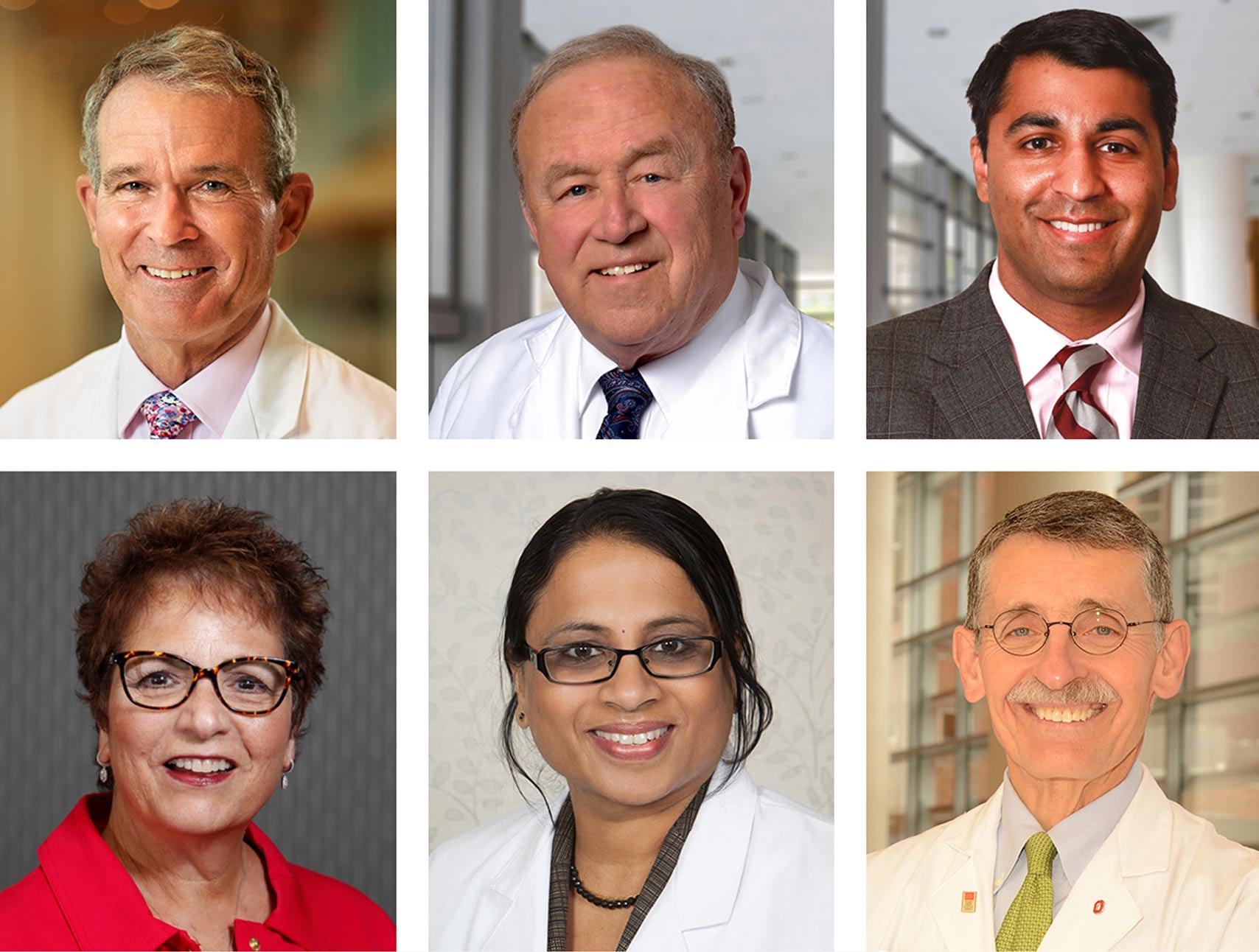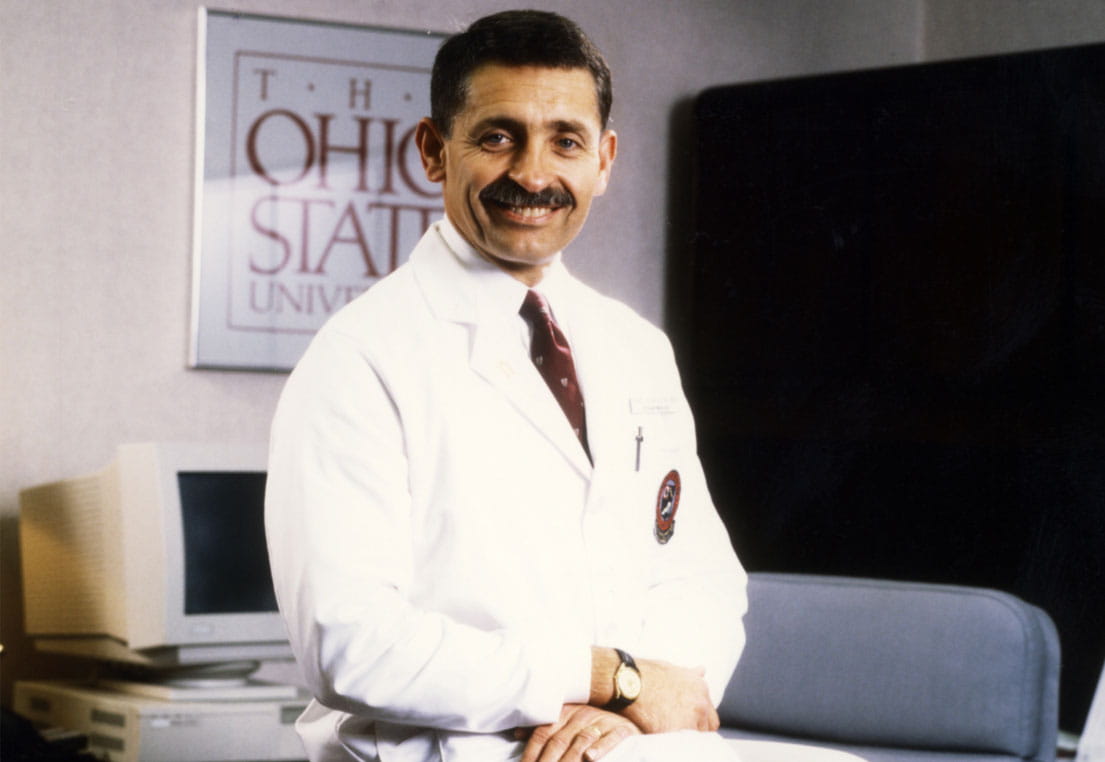
The landscape of cancer diagnosis, treatment and prevention has brightened considerably since 1971, when President Richard Nixon signed the National Cancer Act, but because of the complex and multifarious nature of this disease, OSUCCC – James experts have slightly varied perspectives about when or whether the “war on cancer” will be won.

Pictured left to right: top row - William Farrar, MD; Michael Grever, MD; Sameek Roychowdhury, MD, PhD; bottom row - Electra Paskett, PhD, MSPH; Bhuvaneswari Ramaswamy, MD; David Schuller, MD
William Farrar, MD, points out that cancer “isn’t just one disease but has multiple causes that will require many cures.” “I do believe we’re much closer to ending cancer, and I’m optimistic that vaccines, personalized medicine and smart lifestyle choices will help prevent and treat a much greater proportion of cases than currently happens,” he says. “Effective treatment strategies are possible only through teamwork, and thankfully we have an incredible team of specialized clinicians and researchers who are pioneering innovations in cancer care. These breakthroughs are the reason I feel so hopeful about the future.”
Michael Grever, MD, says he believes that “Systematic and collaborative basic and clinical research will be our best hope for continued progress in diagnosis and treatment.”
Sameek Roychowdhury, MD, PhD, and Electra Paskett, PhD, MSPH, also have perspectives.
“With talented researchers and clinicians, teamwork and the support of our community, I am confident the OSUCCC – James can help create a cancer-free world,” Roychowdhury says.
Paskett cites examples to reflect her optimism. “Right now, we have the ability to eliminate cervical cancer by adopting the three pillars established by the World Health Organization: HPV vaccination, cervical cancer screening, and appropriate follow-up and treatment for abnormal test results and cancers,” she says. “If we can devise a strategy for eliminating one cancer, we can do it for others.
“We also can prevent many colorectal cancers through screening and removing polyps, and most lung cancers can be prevented by not smoking,” she adds. “So I think we could eliminate the ‘low-hanging fruit’ now, and then use our resources and brain power to tackle the rest.”
Bhuvaneswari Ramaswamy, MD, offers a balanced assessment. “Even if we can’t eradicate all cancer for all people,” she says, “I believe we’ll be able to cure more and more cancers and improve not only patient survival but quality of life. And for cancers we can’t cure, we can perhaps make them behave like a chronic disease and help patients live well and longer.”
David Schuller, MD, believes there is “no question that Ohio State will continue to play a major role in diagnosing, treating and preventing this disease. We have positively impacted the lives of millions of patients with cancer, not just in Ohio but throughout the world. As long as all of us—including our patients, researchers, clinicians, staff and supporters—will ‘keep charging,’ we’ll increasingly convert cancer from what was once a uniformly fatal disease to one that is controllable.”
“Keep charging” was a phrase Schuller often applied when he led the OSUCCC and The James. “I always wanted to motivate our faculty and staff to not let little setbacks affect them attitudinally,” Schuller explains.

“It’s not going to be one home run that’s going to do this; it’s going to be a series of singles that brings scores across the plate and converts this disease. We have to keep pushing forward.” - David Schuller, MD
Read more stories from the 50 years of cancer series:

Your support fuels our vision to create a cancer-free world
Your support of cancer care and pioneering research at Ohio State can make a difference in the lives of today’s patients while supporting our work to improve treatment and reduce cases tomorrow.
Ways to Give



